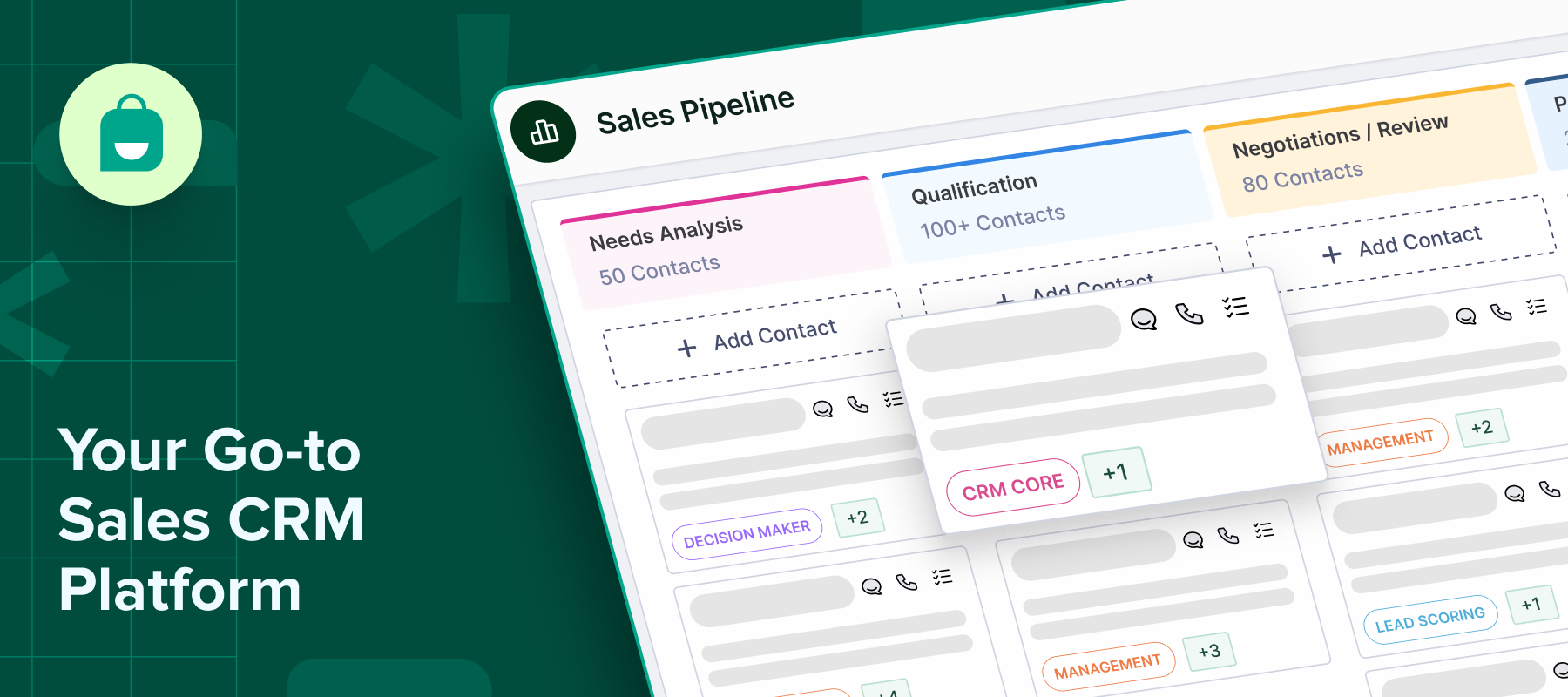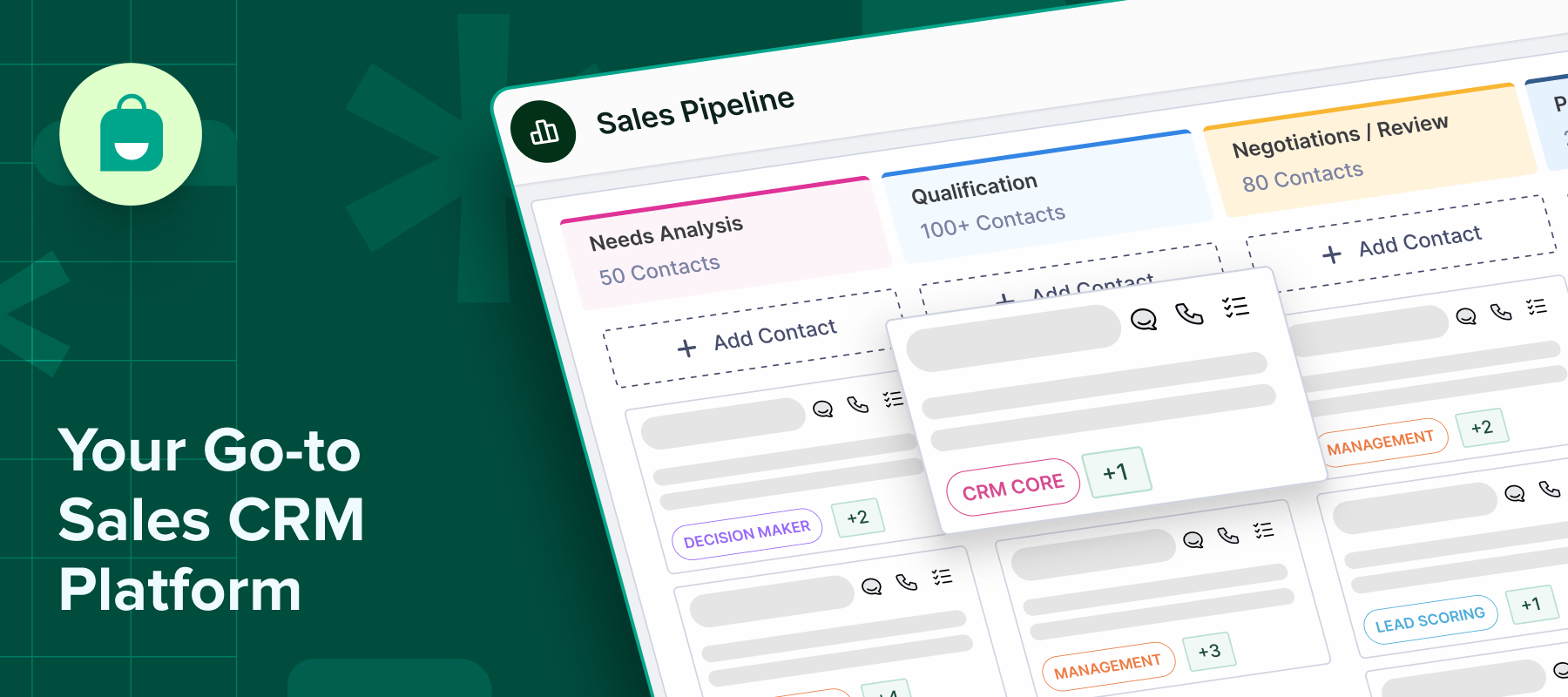CRM automation has been around for a while, helping businesses automate routine tasks. It has reduced manual work, improved follow-ups, and brought consistency to customer engagement.
However, as LLMs advance, business needs also change, and basic automation alone isn’t enough to keep up. This is where AI helps by adding a new layer to traditional CRMs and making processes faster and smarter.
In this post, we’ll explore how AI enhances Sales CRM automation and what that means for modern sales and marketing teams.
What is AI in CRM Automation?
AI in CRM automation uses artificial intelligence to improve how customer relationship management systems work. Unlike traditional CRMs that follow fixed rules, AI-powered CRMs learn from data, adapt to user behavior, and make smarter decisions to increase customer engagement and sales performance.
Some of the key AI technologies in modern CRM systems:
–Machine Learning (ML): Helps CRMs learn from past data to improve lead scoring, recommendations, and task automation.
–Predictive Analytics: Forecasts customer behavior, sales trends, and churn risks for proactive decision-making.
–Natural Language Processing (NLP): Allows CRMs to understand and respond to human language, powering chatbots, sentiment analysis, and automated replies.
Key Ways AI Enhances CRM Automation
Here are some of the key ways in which AI improves CRM automation on tools like Interakt:
1. Predictive lead scoring
AI evaluates lead behavior, engagement history, and demographic data to assign a score to each lead. This scoring helps CRMs automatically prioritize leads and route them to the appropriate sales rep or workflow.
2. Personalized customer interactions
AI customizes messages based on customer preferences, activity, and communication patterns. Based on real-time data, it can automatically generate personalized responses, product recommendations, or follow-ups.
3. Intelligent task and workflow automation
Beyond basic rule-based automation, AI allows dynamic workflows that respond to customer behavior or context. For example, if a lead replies with interest in pricing, AI can automatically assign the lead to the right rep, update CRM fields, and schedule a follow-up, reducing manual steps.
4. Automated follow-ups and reminders
CRMs with AI can monitor deal activity and engagement signals to schedule and send automated follow-ups. It can also remind sales reps when key actions are overdue or stalled.
5. Advanced data analysis and reporting
AI can provide deeper insights by analyzing large volumes of CRM data quickly and accurately. It can generate reports, detect anomalies, and surface patterns like drop-off points in the sales funnel or declining response trends that manual reporting often misses.
6. Smart sales forecasting
AI improves the accuracy of sales forecasts by considering a wide range of variables, like deal history, customer engagement, market conditions, and seasonality. Unlike traditional methods, it reduces reliance on guesswork and provides real-time, data-driven projections.
Benefits of AI-Enhanced CRM Automation
Here are some of the key benefits businesses of using AI-powered CRM automation:
–Increased productivity: AI helps teams save time by automating repetitive tasks like data entry, lead assignment, and follow-ups. This reduces manual intervention and allows teams to focus on high-impact activities like engaging prospects or closing deals.
–Improved customer satisfaction: It personalizes support, product recommendations, and follow-ups based on real-time needs, making each interaction relevant. This improves the overall experience and builds long-term customer loyalty.
–Higher conversion rates: AI ensures sales reps engage the right leads at the right time, using personalized messaging and behavior-driven triggers. This targeted approach improves lead nurturing and chances of closing deals.
–Better decision making with data insights: It transforms raw data into actionable insights, helping businesses spot trends, predict outcomes, and make faster, smarter business moves.
Future Trends: What’s Next for AI in CRM Automation?
Here are some key trends shaping the future of AI in CRM automation and how they can further impact business performance:
1. Hyper-personalization
Today’s personalization is mostly about names and past purchases. But AI in CRMs will soon predict customer needs before they’re even expressed.
Think of a CRM that spots churn risk and launches retention workflows automatically, or one that adapts follow-up messages based on tone or urgency. This goes beyond demographics to behavior patterns, timing preferences, and emotional cues.
This means fewer missed opportunities, higher lifetime value, and a one-to-one relationship at scale for businesses.
2. Conversational AI and chatbots
Future CRMs will embed conversational AI that remembers every prior interaction, understands emotional tone, and shifts communication style in real time. It won’t just talk, it will carry a conversation over days or weeks, picking up exactly where it left off across platforms and devices.
For businesses, it means faster support, seamless upsells, and a more natural customer experience.
3. Autonomous CRM systems
Soon, AI will assign leads, schedule follow-ups, or build segmentation lists based on ongoing analysis of customer behavior, sales trends, and predicted outcomes.
These autonomous systems will identify top opportunities, launch micro-campaigns, and adjust strategy based on market signals, without a human touching the dashboard.
Freeing teams to focus on creativity, relationship building, and high-value work.
Conclusion
AI is now a key part of modern sales teams’ work, helping them respond faster, sell smarter, and close more deals.
If you also want to incorporate AI into your business, you need a CRM built to support it.
That’s where Interakt CRM comes in, with automated workflows, real-time insights, smart lead management, and powerful integrations that help your team use AI daily.


